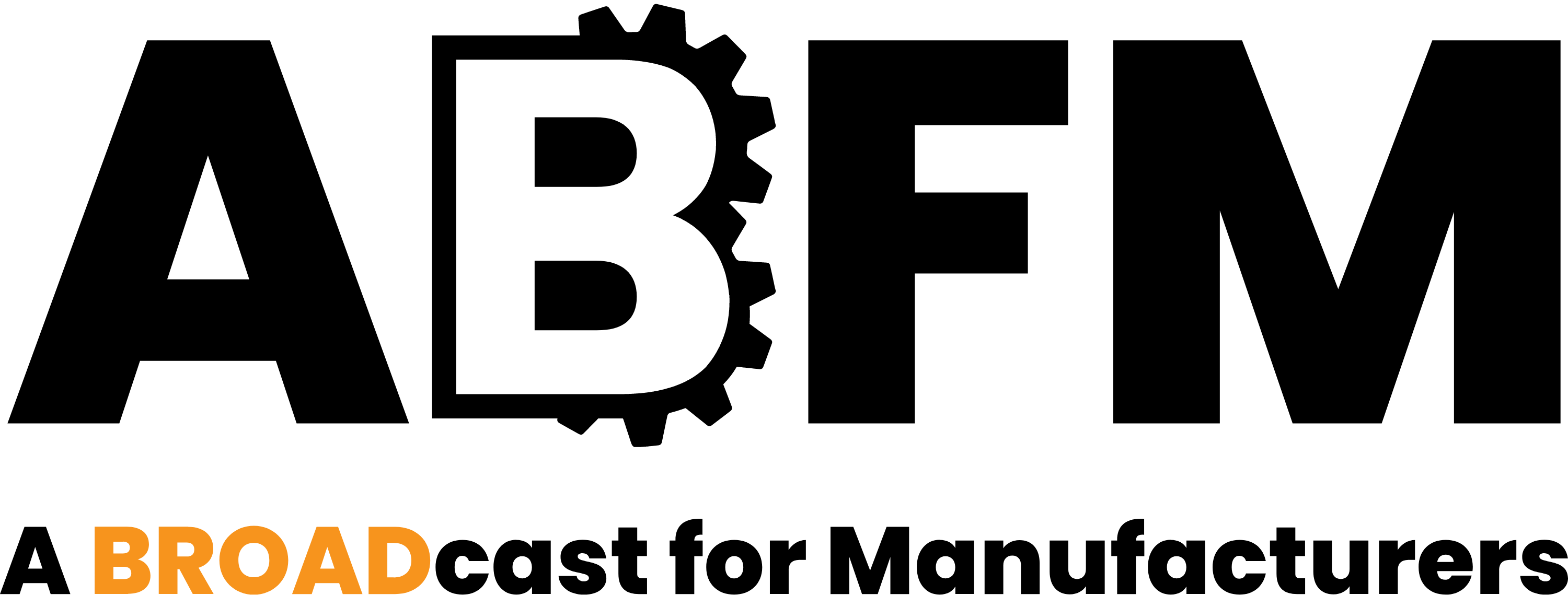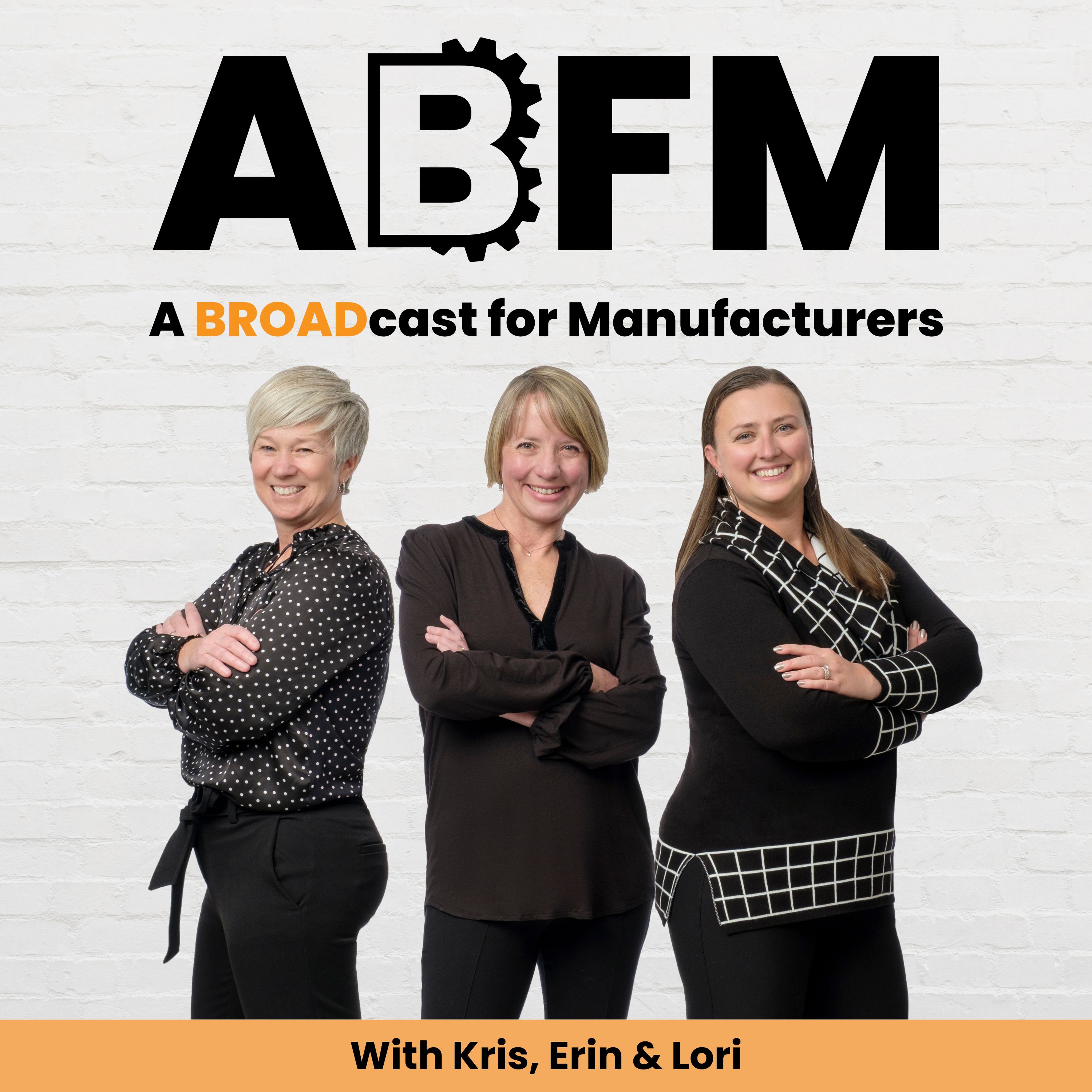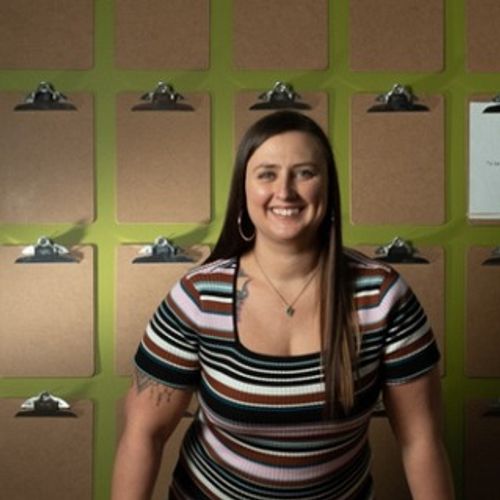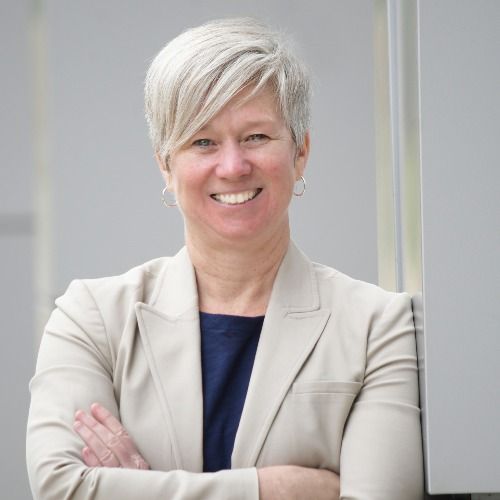Episode 27
27: Unpacking Why Manufacturing Industry Publications are Ever-Changing - with Kate Bruns
Meet Kate Bruns:
She is a lifelong writer, who spent 20 years working in the higher education communications world. She was living in Des Moines, Iowa when her husband took a new job and the family moved to Neenah Wisconsin in January 2020. After a short time as a very reluctant pandemic homeschool teacher dabbling in freelance marketing communications work, she jumped at the opportunity to embrace her first love, magazines. So she became a writer-editor at insight publications, a regional business magazine serving Northeast Wisconsin. Today, her primary responsibility is editing the BI monthly magazine insight on manufacturing.
Lori: In this digital age, is there still room for long-form print magazines and what are you hearing from your readers about that?
Kate: So inside our manufacturing has been around for 15 years. We serve 18 counties of Northeast Wisconsin covering manufacturing. And yes, over those 15 years, the internet has exploded. It's gotten noisier digital communications are definitely the thing. But over that amount of time, the appeal of a tangible print product has actually sort of come back in some ways. Our audience is pretty broad-ranging in terms of age. But obviously, some of the folks who've been around a little bit longer are still pretty big fans of holding something in their hands and reading it kind of really diving into a topic, which is what we do at Insight. So, you know, yes, there is still room for print publications to advertisers like it. But we are evolving, just like every other business into doing more digital and insight. But really our flagship, our heart, and soul is still in that print world with the glossy photography in the color and the tangible magazine that people can sit down and have their coffee and read on a Sunday morning or whatever.
Lori: Was it intimidating jumping into this new job setting of manufacturing?
Kate: It definitely was intimidating. I mean, I had my father was an engineer. And until I was probably 12 years old, I thought he drove a train. I love it. So I was like, Oh, my God, he makes tractors, I don't really know what else is involved in that. So you know, growing up, it was not something even though he was in the space, I didn't really understand all the nuances of manufacturing. And then when I went to journalism school, I was very focused on sports media and the human interest type of journalism. So yeah, when I'm offered this job to be editor of IOM, I'm thinking oh, my gosh, I'm not a thought leader on manufacturing, I'm going to ask stupid questions. But you know, like I said, it really doesn't matter. If you have that expertise yourself. I'm looking for the experts. I'm not I don't have to be the expert, I have to make what they say sounds good. And, and helpful in connecting people. So it's really been really pretty awesome to learn so much about manufacturing in the process of having this job. And I'm just so inspired and sort of awed by this concept of making, right? You know, this area of Wisconsin has one of the largest concentrations in the country, for manufacturing, and you don't see that everywhere. And you kind of take for granted that people are actually making things here. And it's really, really cool.
Kris: What have you grown to love or appreciate about manufacturing since you started there?
Kate: There are so many stories to tell. And the community is actually really collaborative. I think in my brain, I thought, you know, these are competitive, proprietary enterprises that don't want to talk about their problems or share their secrets. And in some respects, that's definitely true. But the competition is global. For most of these manufacturers in Northeast Wisconsin, the collaboration ends up, you know, being pretty localized. And we're just so much stronger, versus a region in Northeast Wisconsin, but also as a state. And every time I can get people to work together, it seems like they're solving problems. So I think there's just such a spirit of getting things done. That's inherent to people in manufacturing. And that includes, you know, solving some of these challenges. And there are big ones, but the workforce and the environment, and education are all big parts of that.
And so much more…
Connect with Kate!
https://www.insightonbusiness.com/
kbruns@insightonbusiness.com
Connect with the broads!
Connect with Erin on LinkedIn and visit http://www.earthlinginteractive.com for web-based solutions to your complex business problems!
Connect with Lori on LinkedIn and visit www.keystoneclick.com for your strategic digital marketing needs!
Connect with Kris on LinkedIn and visit www.genalpha.com for OEM and aftermarket digital solutions!
Transcript
Lori Highby Chris Harrington and Aaron Courtney, three broad spring a new stories and strategies exploring manufacturing topics that
Lori Highby:Chris, I know you're gonna hate that bring this up. But we talk chat GPT for a quick second.
Kris:Absolutely. Everybody else's we know, I
Lori Highby:know. I just how have you used it? Let's just talk about that. Like how, what have you used it for recently.
Kris:So recently, what's the last thing that recently I use it for LinkedIn post prompted it with everything I was thinking about. And
Kris:the blog side. We are working through right now some help tools for our product, and, you know, big, very detailed instructional type things. And
Kris:recent job description. Yes. So, you know, absolutely. I when I'm stumped, I and I'm, I just am not in a creative mood. It's the end of the day, I go
Lori Highby:Well, that's why prompt engineers are kind of the new title that you know, there can be positioned in the AI space. Oh, I've used it
Lori Highby:blog. ideation. I've used it for actually had to give a presentation not so long ago on a topic that I haven't specifically spoken on before and I
Lori Highby:Bruns, who is our guest today. She's a lifelong writer, who spent 20 years working in the higher ed communications world. She was living in Des
Lori Highby:Northeast Wisconsin. Today, her primary responsibility is editing the BI monthly magazine insight on manufacturing. Kate, welcome to the show.
Unknown:Thank you. You've kind of freaked me out with your interest since I'm a real human writer, and he is coming for us.
Kris:I don't think so. It certainly I think it's gonna help you be more productive. But I don't think it's going to take away your skills. For
Unknown:Well, that's good job security. Right.
Lori Highby:Yeah, yeah, I mean that I'm not, we're not on the paid version, but I hear that is a little bit stronger and how it's positioning
Lori Highby:behind it. So again, it's it's that's where the human powers is, isn't strategy. At least that's my opinion. Yeah. All right. So let's talk about
Unknown:Sure. So inside our manufacturing has been around for 15 years. We serve 18 counties of Northeast Wisconsin covering manufacturing. And yes,
Unknown:still pretty big fans of holding something in their hands and reading it kind of really diving into a topic, which is what we do at at InSite. So,
Unknown:read it on a Sunday morning or whatever.
Lori Highby:Yeah, I mean, I receive it. And I enjoy, you know, flipping through the pages and, and reading the stories and seeing who else was
Lori Highby:around and have, you know, for longer lifetime than kind of your generalist publications, which you're seeing with the newspapers and whatnot nowadays,
Kris:yeah, yeah. Yeah, I don't know if that means that I'm old school mindset. But uh, you know, I just don't have a few magazines that come to
Kris:still get, and I just really do enjoy flipping through and not being on my phone to have to read something, sometimes it is just nice to put the phone
Unknown:yeah, and we've absolutely leaned into that niche. Right. And, you know, one of the reasons that we have the audience that we have is because
Unknown:covering what we want to cover and you're you're hitting the audience that we want to hit with our message. So that's been really helpful to keep IOM
Unknown:of them. Gonna do it. Yeah,
Lori Highby:yeah, we should get her on the show to them. You should be great.
Unknown:She She loves to talk. You know, and the thing that I always say about writing about manufacturing because it was like, I don't have a
Unknown:retaining the talent that they need to run their business. And so that really ends up being a lot of the content in IOM is, how do we get into K
Unknown:ITT Tech Tech Ed programs, we cover a lot of that we cover our technical college system a lot. So yeah, it's really ends up being a lot of talent,
Lori Highby:tastic, you lightly touched on this, but you have a father who worked in, in manufacturing, but You, yourself did not have any experience
Unknown:It definitely was intimidating. I mean, I had my father was an engineer. And until I was probably 12 years old, I thought he drove a
Unknown:journalism. So yeah, when I'm offered this job to be editor of IOM, I'm thinking oh, my gosh, I'm not a thought leader on manufacturing, I'm going
Unknown:having this job. And I'm just so inspired and sort of awed by this concept of making, right. You know, this area of Wisconsin has one of the largest
Kris:Yeah. That's one of the things I love about Wisconsin. And I think it's why when when you're from Wisconsin, and you travel to other states,
Kris:Wisconsin, which is something I really love and adore about Wisconsin, too. You know, it's interesting, you mentioned some of the biggest topics that
Kris:with that. I'm curious if that's something that you guys have been writing about. And if there are any other particular topics that are coming out
Unknown:Sure, yeah. Sustainability is definitely a huge focus of our magazine. We kind of have departments their global back office, talent,
Unknown:about sustainability directors and companies trying to figure out how to implement them and what their role is, and how it's really shifted toward
Kris:yeah, I think that could be a great resource for companies because I know, companies that are trying to figure out what are the rules of OSHA
Kris:you're fitting right in, I'm curious, what have you grown to love or appreciate about manufacturing since you started there?
Unknown:I think it's just,
Unknown:there's so many stories to tell. And the community is actually really collaborative. I think in my brain, I thought, you know, these are
Unknown:Wisconsin, but also as a state. And every time I can get people to work together, it seems like they're solving problems. So I think there's just
Lori Highby:Awesome of that. Yeah. Teamwork makes the dream work
Unknown:through your absolute absolutely right, Chris, and what you say about the work ethic in this in this state, I interviewed Sofitel about why
Unknown:source of pride for them. Yeah. Yeah.
Lori Highby:All right, we're gonna transition to a little bit more fun topic, I guess, here. Kate, can you share something with our listeners that
Unknown:Yeah, I, I don't know how many people know me anyway. But I would say that I mentioned it earlier, I kind of started my career in sports. I
Unknown:you're writing about supply chain, so yeah, but I'm a huge sports junkie, I went to Iowa State, I'm a big Iowa State fan. And forgive me for that.
Unknown:So Oh, wow. That's a big
Lori Highby:part of my dream. Chris and I are definitely words or I wouldn't say junkies but athletic and intrigued and fascinated and
Unknown:Yeah, I loved basketball, but I just wasn't really that great at playing it. So I kind of went to the other side of it. Well, I'll have
Kris:to say watching Caitlin Clark this year was incredible. I never saw a player like that before my entire I've never seen a player like that. I
Unknown:I have been a big advocate for women's sports for a long time. And it's nice to see women's basketball really coming into the national
Unknown:money and exposure, and it's college women's basketball. And that's just a really kind of cool thing to be able to think about.
Lori Highby:Awesome. Yeah, I love that. All right. This is a section of our show that I very much enjoy. Chris, why don't you finish this sentence?
Kris:Well, I just learned from our friend Jake Hall, the manufacturing millennial, that 75% of skilled skilled trades workers are over the age of
Kris:the skilled trades, you know, I've, I've often thought being I should have been an electrician, you know, and for whatever reason that fascinates me,
Kris:construction, they all had I have an uncle who was a mechanic, right. So a little bit different, but fixing the vehicles that have to be continued to
Kris:good benefits, and it's a good option for people. So I hope that you know, just talking about this, we'll promote it a little bit in a different way.
Lori Highby:I have heard like some of my friends that have you know, kids that are middle school age, like they're really encouraging them to pursue,
Lori Highby:problem, but it's because most people are sitting at desks all day long. And I think there's something that's one of the reasons why I wish I would
Unknown:That's actually on my story. Idea list is how can we promote manufacturing as an active lifestyle? Right? Yeah.
Kris:That sounds like a great story. Make sure you you know when that's published, if you food promote mode, it socially in any way tag us because
Lori Highby:Well, you know what, Ron, I'm gonna go. Um, so I just I read this article, and it was somewhat interesting. The CEO at IBM, Arvind
Unknown:Wow. That's a
Lori Highby:that's a wage. If you think about this, this is again, back office admin type roles. We're here advocating go get your hands dirty
Kris:Yeah. Could be the could be the push that's needed to move people from one area to another area,
Unknown:for sure. Hey, what about you?
Kris:What have you just learned?
Unknown:Oh my gosh, I learned something every day, which is why I love my job. But one of the topics that we're really working on right now, last
Unknown:things like that, which are some cool innovations to get around that. But at the end of the day, one of the biggest challenges with with childcare is
Unknown:affordable and lift those people's wages. And there's some really great ideas starting to float around. But I also heard people in the room say
Unknown:there just doesn't seem to be a sustainable solution for childcare. Yeah. Yeah. And a little sobering.
Lori Highby:Yeah, there's definitely some initiatives to try to get some federal funding for this to help alleviate the pains that a lot of these
Lori Highby:those to create some profitability for their households while raising raising children, too, so. Yeah, thank you. Thank you so much, Kate. Could
Unknown:Yes, absolutely. I am always all ears with for story ideas. Anybody who wants to pitch me anything, anytime I'm all I'm all ears. I
Unknown:like to receive the magazine, please connect with me, I would be more than happy to put you on the list. Even if you don't live in our region. It
Kris:Wonderful, awesome. Thank you so much, Kate.
Lori Highby:Absolutely. We'll put all that information out to connect with you in our show notes. All right. These are three broads wrapping up please
Unknown:this wraps up today's broadcast. If you're looking to shake up the status quo at your organization, or just want to connect with these broads.




